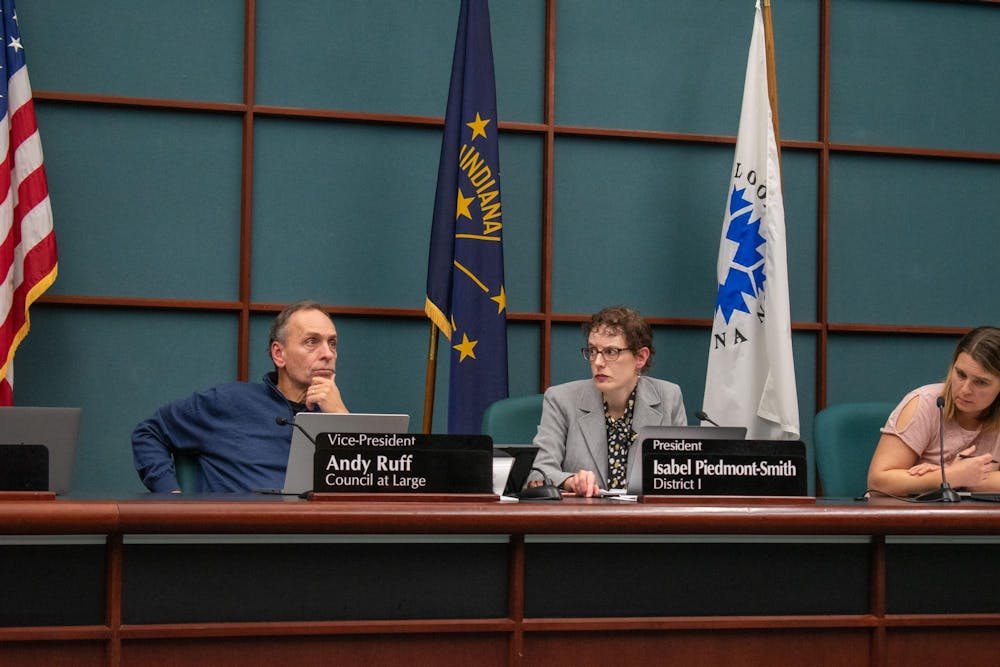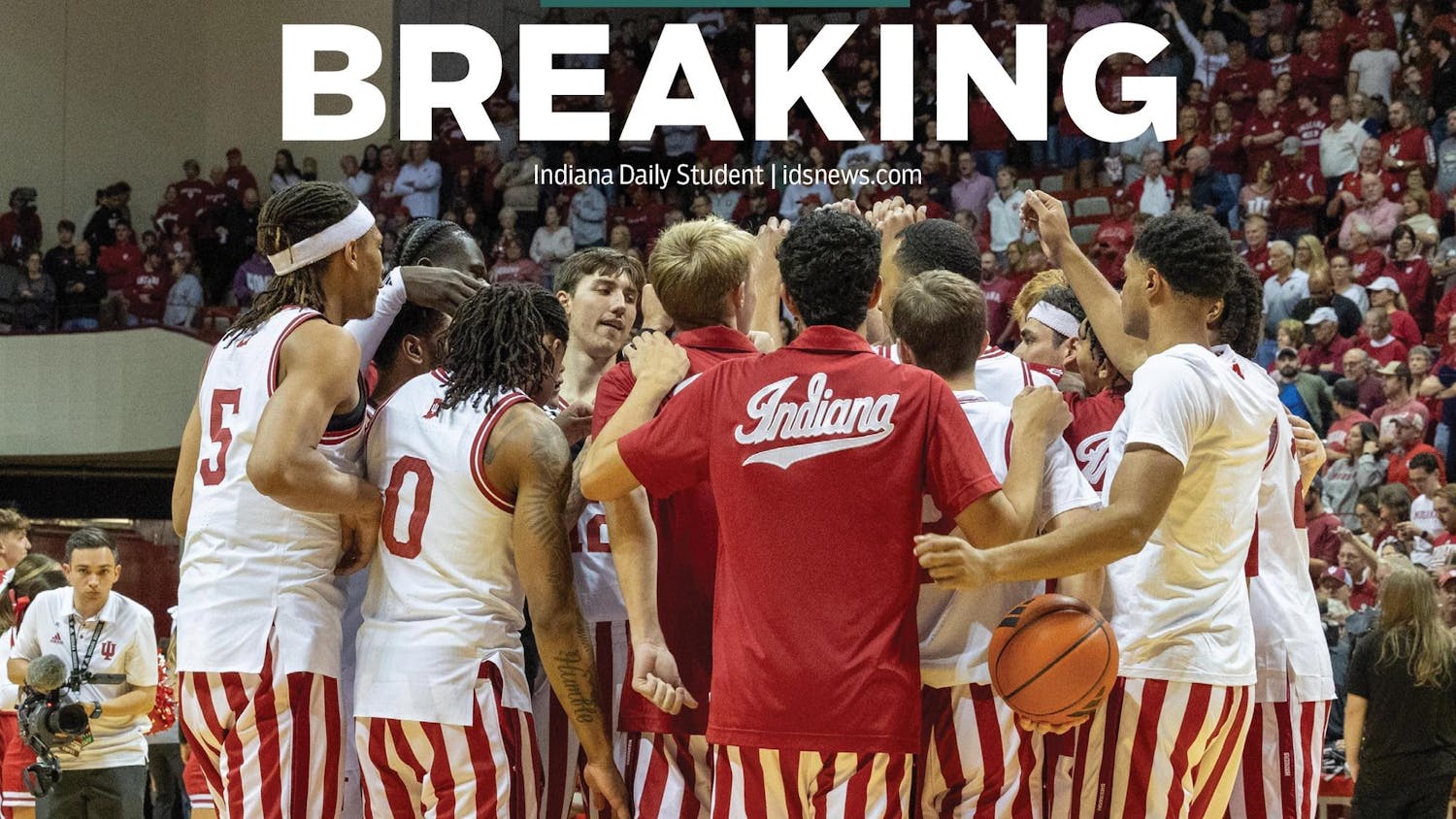The Bloomington City council approved in a 9-0 vote Mayor Kerry Thomson’s recommendations for how the city should spend the more than $855,000 in community development grants during its meeting Wednesday.
Anna Killion-Hanson, interim director of the Bloomington Housing and Neighborhood Development Department, said the city estimates it will receive $855,868 in Community Development Block Grants for the 2024 fiscal year, which will be put toward community social service programs and physical infrastructure improvements across Bloomington.
Each year, Bloomington receives funds from the U.S. Department of Housing and Urban Development in the form of CDBG grants. The city council must approve Thomson’s allocation recommendations before the Bloomington Department of Housing and Neighborhood Development can administer the funds.
CDBG grants are used to fund social service programs, physical improvements and administrative services. The city relies on its 2020-2024 Consolidated Plan – which details the city’s affordable housing, community development needs, goals and priorities – to decide how to allocate funds. The mayor’s office collects input from the Bloomington Redevelopment Commission and two Citizen Advisory Committees comprised of two city council members, two redevelopment commission members and 18 mayor-appointed community members.
According to the U.S. Department of Housing and Urban Development, Bloomington must use at least 70 percent of its CDBG funds for activities and resources that benefit low-income and moderate-income residents. The remaining CDBG funds must be used to address community development needs that arise from threats to residents’ health or welfare and to prevent and eliminate blighted areas.
The U.S. Department of Housing and Urban Development also requires the city to allocate less than 15 percent of its funds to social service programs and less than 20 percent of its funds to administrative costs. At least 65 percent of the city’s funds must be allocated towards physical improvements.
The city approved allocations for physical improvements for the following community organizations:
- Centerstone of Indiana: $200,000
- LifeDesigns Inc: $86,515
- Monroe County United Ministries: $48,771
- New Hope for Families: $52,500
- Summit Hill Community Develpment Corporation/Bloomington Housing Authority: $168,528.20
The city approved allocations for social service programs for the following community organizations:
- Hoosier Hills Food Bank: $18,350
- Community Kitchen: $19,600
- New Leaf New Life: $18,550
- Mother Hubbard’s Cupboard: $17,900
- Middle Way House: $18,400
- Beacon: $18,450
- Monroe County United Ministries: $17,130.20
Killion-Hanson said all funds used for administrative services must be directly tied to supporting CDBG activities and resources. Additionally, Killion-Hanson said the $855,868 the city is set to receive is only an estimate and the U.S. Department of Housing and Urban Development will release the final amount later this year. However, she said the final amount the city receives is usually very close to the estimated amount.
Councilmember Dave Rollo pointed out that the amount of funds Bloomington receives through CDBG grants each year has steadily decreased since the program was launched in 1974. In 2014, the city received $954,000 in CDBG grants and in 2004 it received $1.24 million.
Rollo said he expects that funding will continue to decrease in the future, even as applications from community organizations for this funding increase. Rollo said the logical way to address this decrease is to better fund the city’s Jack Hopkins Social Services Grant program. This committee allocates funding to social service agencies for projects that make a difference in residents’ lives.
“It’s not keeping pace — and it’s certainly not keeping pace with inflation,” Rollo said. “Poverty is a real problem in this community; we must address the needs of Bloomington people in this community.
Councilmember Matt Flaherty echoed Rollo’s concerns and encouraged the council to look at increasing funding for the city Sidewalk Committee, which recommends appropriations from the Alternative Transportation Fund to design and construct new sidewalks.
Councilmember Kate Rosenbarger, who has served on the Physical Improvements Citizen Advisory Committee and Jack Hopkins Committee, also said the city needs to make the application process – for both the CDBG and Jack Hopkins funds – more accessible to nonprofits applying for funding. She explained how one year the Jack Hopkins committee members decided they would primarily fund women’s shelters but did not indicate this on an application. This meant some applicants were immediately disqualified even after filling out an application.
“I think with both processes it is really difficult for the applicants to predict in any way or form what the committee is going to be looking at and going after for any specific year,” Rosenbarger said. “I think all of this is really taxing on those people applying.”






